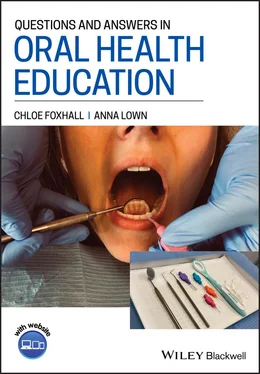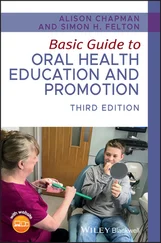8.2.3 Where possible, you should raise concerns first with your employer or manager. However, it may not always be appropriate or possible to raise concerns with them, particularly if they are the source of your concern.
8.2.4 If it is not appropriate to raise your concern with your employer or manager, or if they fail to act on your concern, you must raise your concerns with your local commissioner of health or with the appropriate body from the following:
the Care Quality Commission;
Healthcare Inspectorate Wales;
the Regulation and Quality Improvement Authority;
Healthcare Improvement Scotland. You can also get advice from your defence organisation or professional association.
8.2.5 If you think that the public and patients need to be protected from a dental professional registered with the GDC, you must refer your concern to us. This may be appropriate when:
taking action at a local level is not practical; or
action at a local level has failed; or
the problem is so severe that the GDC clearly needs to be involved (for example, issues of indecency, violence, dishonesty, serious crime, or illegal practice); or
there is a genuine fear of victimisation or deliberate concealment; or
you believe a registrant may not be fit to practise because of his or her health, performance or conduct.
8.2.6 You must refer concerns about other healthcare professionals to the relevant regulator.
Standard 8.3 Make sure if you employ, manage, or lead a team that you encourage and support a culture where staff can raise concerns openly and without fear of reprisal.
8.3.1 You must promote a culture of openness in the workplace so that staff feel able to raise concerns.
8.3.2 You should embed this culture into your policies and procedures, beginning with staff training and induction.
8.3.3 You should encourage all staff, including temporary staff, staff on different sites, and locums, to raise concerns about the safety of patients, including the risks that may be posed by colleagues, premises, equipment, or practice policies.
8.3.4 You must not offer staff contracts which contain a ‘gagging clause’ that would prevent them from raising concerns about patient safety or restrict what they could say when raising a concern.
Standard 8.4 Make sure if you employ, manage, or lead a team that there is an effective procedure in place for raising concerns, that the procedure is readily available to all staff and that it is followed at all times.
8.4.1 You must make sure there are written procedures in place to enable staff members to raise concerns. This means:
being aware of and adhering to current laws and regulations;
supporting staff members who raise concerns;
taking steps to tackle any shortfalls in the standards and performance of staff; and
having systems in place for supporting staff who may be having problems with their health, behaviour, or professional performance.
8.4.2 When a member of your team has raised a concern, you must:
take the concerns seriously;
maintain confidentiality when appropriate;
investigate promptly and properly and make an unbiased assessment of the concern;
keep the staff member who raised the concern advised of progress, explaining any action taken or reasons for not taking action; and
ensure that you monitor the action you take to solve the problem.
Standard 8.5 Take appropriate action if you have concerns about the possible abuse of children or vulnerable adults.
8.5.1 You must raise any concerns you may have about the possible abuse or neglect of children or vulnerable adults. You must know who to contact for further advice and how to refer concerns to an appropriate authority such as your local social services department.
8.5.2 You must find out about local procedures for the protection of children and vulnerable adults. You must follow these procedures if you suspect that a child or vulnerable adult might be at risk because of abuse or neglect.
Principle 9 – Make Sure your Personal Behaviour Maintains Patients' Confidence in You and the Dental Profession
Patient expectation:
That all members of the dental team will maintain appropriate personal and professional behaviour.
That they can trust and have confidence in you as a dental professional.
That they can trust and have confidence in the dental profession.
Standard 9.1 Ensure that your conduct, both at work and in your personal life, justifies patients’ trust in you and the public’s trust in the dental profession.
9.1.1 You must treat all team members, other colleagues, and members of the public fairly, with dignity and in line with the law.
9.1.2 You must not make disparaging remarks about another member of the dental team in front of patients. Any concerns you may have about a colleague should be raised through the proper channels.
9.1.3 You should not publish anything that could affect patients' and the public's confidence in you, or the dental profession, in any public media, unless this is done as part of raising a concern. Public media includes social networking sites, blogs, and other social media. In particular, you must not make personal, inaccurate, or derogatory comments about patients or colleagues.
9.1.4 You must maintain appropriate boundaries in the relationships you have with patients. You must not take advantage of your position as a dental professional in your relationships with patients.
Standard 9.2 Protect patients and colleagues from risks posed by your health, conduct or performance.
9.2.1 If you know, or suspect, that patients may be at risk because of your health, behaviour, or professional performance, you must consult a suitably qualified colleague immediately and follow advice on how to put the interests of patients first.
9.2.2 You must not rely on your own assessment of the risk you pose to patients. You should seek occupational health advice or other appropriate advice as soon as possible.
Standard 9.3 Inform the GDC if you are subject to criminal proceedings or a regulatory finding is made against you anywhere in the world.
9.3.1 You must inform the GDC immediately if you are subject to any criminal proceedings anywhere in the world.
9.3.2 You must inform the GDC immediately if you are subject to the fitness to practise procedures of another healthcare regulator, either in the United Kingdom or abroad.
9.3.3 You must inform the GDC immediately if a finding has been made against your registration by another healthcare regulator, either in the United Kingdom or abroad.
9.3.4 You must inform the GDC immediately if you are placed on a barred list held by either the Disclosure and Barring Service or Disclosure Scotland.
Standard 9.4 Cooperate with any relevant formal or informal inquiry and give full and truthful information.
9.4.1 If you receive a letter from the GDC in connection with concerns about your fitness to practise, you must respond fully within the time specified in the letter. You should also seek advice from your indemnity provider or professional association.
9.4.2 You must cooperate with:
commissioners of health;
other healthcare regulators;
hospital trusts carrying out any investigation;
the Coroner or Procurator Fiscal acting to investigate a death;
any other regulatory body;
the Health and Safety Executive; and
any solicitor, barrister, or advocate representing patients or colleagues.
Конец ознакомительного фрагмента.
Текст предоставлен ООО «ЛитРес».
Читать дальше












